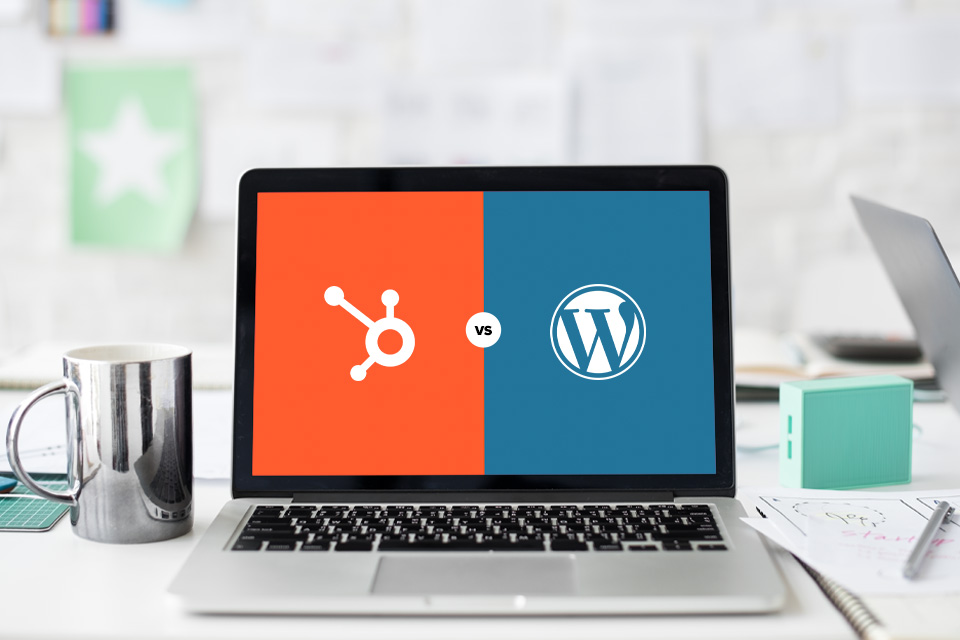Why Integrating Salesforce with HubSpot May Be Your Best Marketing Move Yet
What are the benefits of Salesforce + HubSpot Integrations?
- Greater synergy between marketing and sales
- Next level marketing/ CRM management
- Superior marketing tools (esp. for inbound marketing)
- More intuitive platform for novice users
- Tracks user behavior across the digital platforms
- Makes it easy to remarket to website visitors
- Automates nurturing programs to Salesforce leads & contacts
- Integrates data to build mass email marketing programs
In today’s marketing world, it can sometimes feel like you’re swimming in a sea of software. Software for this, software for that, software to help you manage relationships, HubSpot integrations, nurture leads, grow sales, store data, and so much more. There is software for everything (SOFTWARE – in case I hadn’t said that word enough).
According to BetterCloud, businesses today use 80 different SaaS (Software-as-a-Service) products that are IT-sanctioned. Gone are the days of the solo super tool to run the entire business. To be effective, companies and users want more choice, more utility, and more harmony between apps.
And one of the most popular apps out there is Salesforce.
If you’re working in a small or mid-market business, there’s a good chance that you or your company is already using Salesforce as a Customer Relationship Management (CRM) software.
Founded in 1999, Salesforce is one of the top CRM companies in the world, with over 110 offices around the globe and revenue of over $25 billion in 2022. Some of Salesforce’s more noteworthy clients include Spotify, Toyota, T-Mobile, Amazon Web services and more.
Well, I’m here to let you know that HubSpot, Everbrave’s CRM software of choice – and one of Salesforce’s biggest competitors – is one of the best marketing tools for CRM management.
Not only are Salesforce and HubSpot integrations incredibly easy – HubSpot improves on Salesforce’s limitations in key areas… such as managing inbound marketing.

We have Salesforce. Why HubSpot?
Here at Everbrave, we’re HubSpot devotees. We use it, we love it, and we love telling people why we love it. HubSpot is one of the world’s top CRM software because it is a powerful all-in-one marketing tool that can benefit just about any business. From small start-ups to large enterprises.
Developed in 2006, HubSpot has matured as one of the most effective inbound marketing, sales and customer service platforms available today.
In addition, it’s a fully capable Content Management System (CMS), powering websites and replacing legacy solutions like WordPress and Joomla.
The top benefit behind HubSpot integrations and HubSpot’s ‘multi-hub’ approach is how it unifies customer data within the marketing and sales ecosystem. This ensures all stakeholders have the highest quality data to work from. Ultimately, it empowers people to make better decisions and surface more opportunities every day.
Another thing that makes HubSpot so effective is its ability to easily integrate with other software, and one of the most popular integrations is the native connector to Salesforce.
Many companies have been using Salesforce for years, making the idea of switching a serious pain. And ultimately, if sales reps are engaged and using Salesforce effectively, why fix what isn’t broken?
HubSpot integrations increases Salesforce’s value to Marketers.
Although it’s undeniably powerful as a sales suite, Salesforce has its shortcomings (just like any software).
Marketers often complain that the tools they require are often lacking, especially for inbound purposes. Additionally, Salesforce can be less user-friendly for novice users and requires someone with serious admin chops to manage platform customization. And when it comes to pricing, Salesforce doesn’t offer the affordable pricing packages that HubSpot does.
Forward-thinking sales & marketing professionals who rely on one another to meet targets are starting to realize that integrating both systems creates an amazing synergy. Using two complementary systems in unison makes both sides stronger. And when marketing is more successful and delivers measurable results… it is the sales team that ultimately benefits.
Where Salesforce and HubSpot excel.
Gnerally speaking, most companies pursue a Salesforce/ HubSpot Integrations to take advantage of the amazing marketing and email automation that HubSpot brings to the table (HubSpot Marketing Professional).
Using the rich trove of customer data in Salesforce, marketers can use HubSpot’s industry-leading tools to orchestrate marketing efforts to various customer types at every stage of the buyer’s journey – with a concentrated focus on lead generation.
On the flip side, sales reps can run sales plays based on the rich behavioural data captured via HubSpot. It’s a win-win!
Here’s a breakdown of some of the more common cross-functional benefits of a HubSpot and Salesforce integration:
Salesforce thrives at: Creating leads, contacts, accounts and opportunities Managing sales opportunities Reporting on sales team performance Providing customer support and account management Managing product purchases, subscriptions, users and some operations.
HubSpot excels at: Tracking user behaviour across the digital properties like company websites and apps Re-marketing to website visitors Automating marketing nurturing programs to segmented leads or contacts in Salesforce Building mass email marketing programs leveraging Salesforce Segments.
I am not here to tell you what to do. If you have Salesforce in place, and it’s working for all members of your sales and marketing team, stick to what works.
But before you leave, there are just a few more advantages you should know about…
Access to greater data sharing between platforms.
Of all HubSpot integrations, the ability to share and square up data with Salesforce opens doors for both the sales and marketing team alike. Everything works better when everyone works together!
- Access to HubSpot lead intelligence: Once the integration is done, HubSpot’s sophisticated lead flow can be accessed by the sales team within Salesforce.
- Sales pipeline HubSpot Integrations: This will allow marketers to conduct deeper segmentation of leads and provide active opportunities at each stage.
- Automated sales alerts: based on contact activity on your company website (eg. through forms or email-based CTAs), notifications can be triggered in Salesforce.
- Seamless data syncing: By syncing data between both platforms, you there is one source of truth for the sales and marketing teams. For example, it allows you to master your marketing segmentation strategy in HubSpot.
Boost the power of Salesforce for next-level results.
By using Salesforce and HubSpot integrations, you are opening the door to new opportunities for capturing and qualifying new leads through strategically curated content. Opportunities to nurture leads and know exactly where they sit in the buyer’s cycle. And opportunities to make lasting connections with new and existing clients.
Are you ready to be opportunistic?



